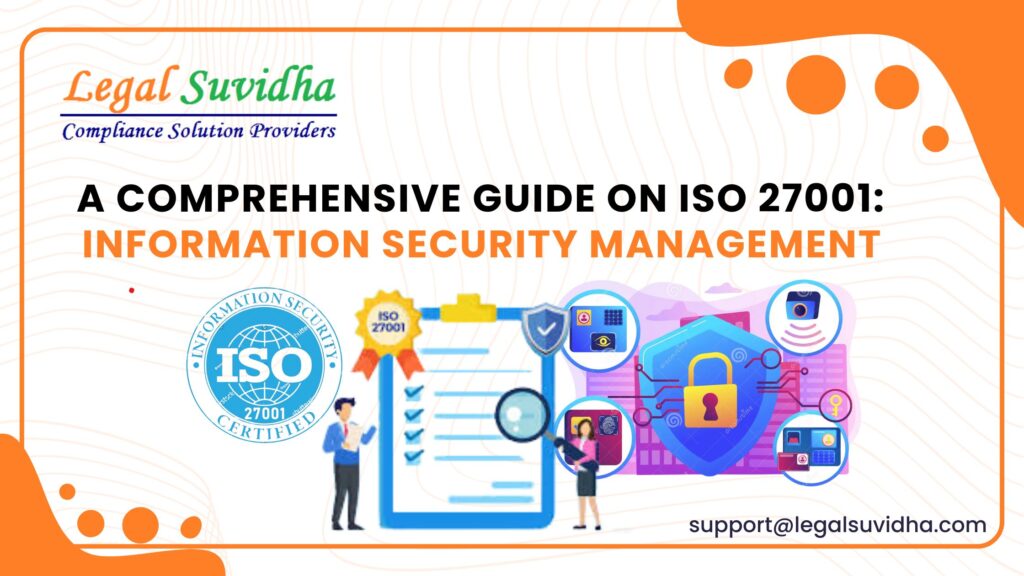ISO 27001: Information Security Management – A Simple Guide
1. What is ISO 27001?
It is a global standard that sets out the rules for creating, using, and improving an Information Security Management System (ISMS). It helps organizations manage and protect their information, making sure it stays private, accurate, and available only to those who should see it.
Why is Information Security Management Important?
With the rise in data breaches and cyber threats, having a strong information security system is crucial. ISO 27001 offers a clear method for managing sensitive information, lowering the risk of security problems.
What Does ISO 27001 Cover?
It includes many areas of information security, like managing risks, control measures, and making continuous improvements. It provides a set of rules for setting up an ISMS to protect information from threats.
2. Key Goals of ISO 27001
- Protecting Information: It ensures sensitive data stays private, correct, and accessible only to authorized people.
- Managing Risks: The standard uses a risk-based approach to security, helping organizations reduce threats and security incidents.
- Legal Compliance: It helps organizations meet legal and regulatory requirements for information security.
3. Requirements of ISO 27001
- Scope of ISO 27001: It covers the entire organization and all aspects of information security, including physical, technical, and administrative controls.
- ISMS Requirements: An ISMS helps handle sensitive information in a methodical way, including risk assessments, security controls, and management reviews.
- Risk Assessment and Treatment: Regular checks help find and address risks to reduce security issues.
- Statement of Applicability (SoA): The SoA lists the controls relevant to your organization and shows how they are applied.
4. Benefits of ISO 27001 Certification
- Better Security: This certification strengthens overall information security.
- Improved Risk Management: It helps reduce the chance of data breaches and security incidents.
- More Customer Trust: Certification boosts trust with customers and stakeholders.
- Regulatory Compliance: It helps meet legal and regulatory requirements.
5. Steps to Get ISO 27001 Certification
- Understand the Standard and its goals.
- Conduct a gap analysis to find areas that need improvement.
- Implement an ISMS with the necessary security policies and controls.
- Perform internal audits and reviews to ensure your ISMS is effective.
- Undergo a certification audit from an accredited body.
- Continuously improve your ISMS based on audit feedback and new threats.
6. ISO 27001 Certification Process
- Choose a recognized certification body.
- Prepare for the audit by reviewing your ISMS and documents.
- Maintain certification by undergoing regular audits and addressing any non-conformities.
7. Common Challenges and Solutions
- Resource Allocation: Ensure you have enough resources, including budget and staff, for your ISMS.
- Employee Training: Regular training helps reduce security risks caused by human error.
- Integration: Merging ISO 27001 with existing systems may need adjustments.
- Maintaining Compliance: Ongoing audits and updates are key to staying compliant.
8. ISO 27001 for Different Industries
- IT and Technology: Protect sensitive data and intellectual property.
- Finance and Banking: Manage and secure financial data.
- Healthcare: Safeguard patient data and meet regulations.
- Government: Enhance security and comply with data protection laws.
9. Case Studies and Success Stories
Many organizations, including large companies and healthcare providers, have achieved this certification, improving their security and risk management.
10. Resources and Tools for ISO 27001
- Use templates and checklists to manage your ISMS.
- Refer to recommended reading materials and guidelines for further insights.
- Consider training providers for better understanding and implementation of the standard.
11. FAQs about ISO 27001
- Q-1: What is ISO 27001 and why is it important?
- It is a global standard for managing information security. It helps protect sensitive information and manage risks.
- Q-2: How long does it take to get ISO 27001 certified?
- It generally takes several months, depending on the organization.
- Q-3: What are the costs for ISO 27001 certification?
- Costs vary based on organization size and certification body.
- Q-4: How often do I need to renew my ISO 27001 certification?
- Certification is valid for three years, with annual surveillance audits.
- Q-5: Can ISO 27001 help with GDPR compliance?
- Yes, it provides a framework for managing and protecting personal data, aiding GDPR compliance.
12. Conclusion
ISO 27001: Information Security Management is key for organizations looking to protect sensitive data and manage security risks. Certification shows commitment to security, offering benefits like better risk management and increased customer trust.










